Scalp Pain Remedies: 15 Natural Home Treatments For Relief
Keep your scalp aches and irritations at bay with natural and effective concoctions.
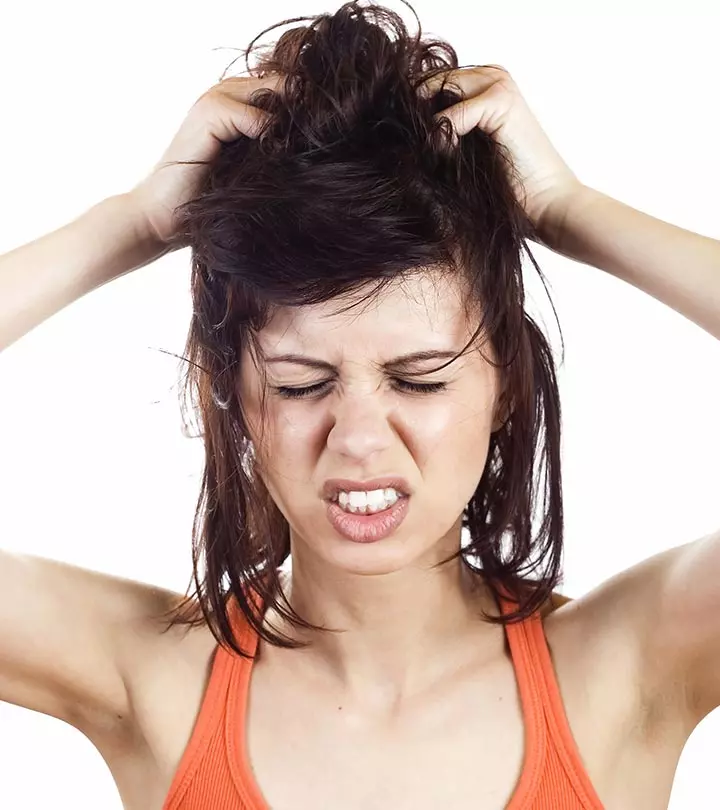
Image: Shutterstock
If you have been neglecting your hair a little, maybe it’s time you pay attention to what your scalp is saying. The scalp plays an important role in protecting your head, and constant scratching, changing your hairstyles often, or an underlying medical condition can leave you with scalp pain. In this article, we look at some of the home remedies for scalp pain and a few tips you can try to prevent scalp pain from developing again.
In This Article
What Is Scalp Tenderness?
If you’ve ever asked yourself, “Why is my scalp hurting?”, here’s what you need to know. Scalp tenderness is a common complaint associated with many medical conditions. These can include migraines, tension headaches, and autoimmune disorders like psoriasisi A non-communicable autoimmune condition that causes scales and dry, itchy patches of skin to form due to abnormal build-up of skin cells. . Even skin conditions like sunburns, rashes, and wounds can cause the scalp to become tender.
A tender scalp can turn itchy. Scratching an irritated or inflamed scalp can cause blisters, sores, or scabs. Other symptoms that surface with scalp tenderness are as follows.
Key Takeaways
- Psoriasis, alopecia areata, and dandruff are a few causes of scalp tenderness.
- You may experience scalp pain, flaking, or peeling when your scalp is tender.
- Neem oil can help treat and soothe itchy scalps due to its anti-inflammatory and antimicrobial properties.
- Natural ingredients like coconut oil can moisturize the scalp and reduce itching.
- Use a gentle shampoo and avoid heat-styling tools that can cause scalp irritation.
Signs And Symptoms Of Scalp Tenderness
Most often, scalp tenderness does not show any symptoms. In some cases, you may notice that your scalp is:
- Unusually painful
- Peeling
- Scaling
- Flaking
- Numb
Several underlying conditions could be responsible for a tender scalp. Some of the common causes of scalp pain or tenderness are listed below.
Causes Of And Risk Factors For Scalp Tenderness
Scalp tenderness is linked to many health conditions. They include:
- Various forms of headaches
- Rashes
- Sunburns
- Lice
- Psoriasis
- Insect bites
- Dandruff
- Skin cell cancers
- Lichen planus, a condition that causes the scalp to scale or flake
- Alopecia areata, a form of hair loss
- Scalp infections, a condition that causes scalp tenderness and hair loss
- Androgenic alopecia
- Trichotillomania
Factors that elevate the risk of this condition include:
- Acne
- Cysts
- Allergic reactions
- Infections of the skin or hair follicles
- Viral diseases like shinglesi A resurgence of the chickenpox virus within the body resulting in a painful rash resembling a streak of blisters. or measlesi A highly contagious viral infection that affects the respiratory tract, resulting in severe fever, inflamed eyes, and rash.
- Tight hairstyles or use of tight headbands
- Frequent use of helmets
- Frequent use of hair dyes
- Frequent use of hair dryers, curlers, and flat irons
 Quick Tip
Quick TipIn addition to tenderness, these conditions can also cause inflammation, pain, flaking, and peeling of your scalp. In rare cases, your scalp may also secrete pus, bleed, or even form blisters and sores.
Such scalp conditions require gentle therapy to alleviate the symptoms. To help individuals struggling from this issue, we have summed up the best home remedies – these help treat your tender scalp and even provide relief from the underlying conditions.
Home Remedies For Scalp Pain And Tenderness
- Tea Tree Oil
- Apple Cider Vinegar
- Coconut Oil
- Neem Oil
- Aloe Vera
- Lemon Juice
- Vitamins
- Baking Soda
- Witch Hazel
- Sesame Seed Oil
- Jojoba Oil
- Flaxseed Oil
- Eggs
- Hydrogen Peroxide
- Honey
1. Tea Tree Oil
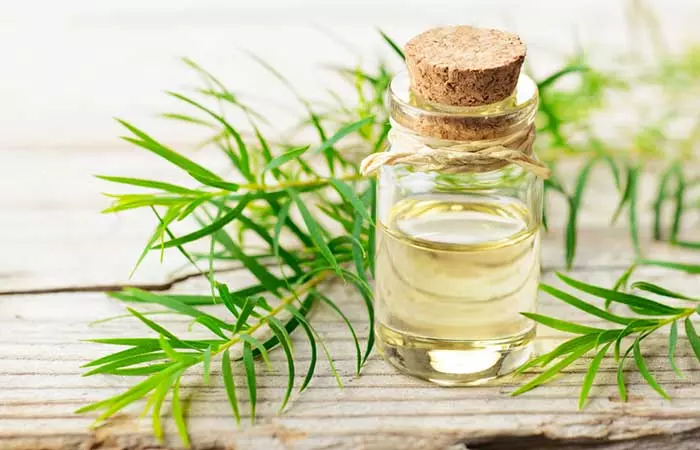
You Will Need
- 5-6 drops of tea tree oil
- 2 teaspoons of jojoba oil
What You Have To Do
- Mix tea tree oil with jojoba oil.
- Apply this mixture to your scalp and massage gently.
- Leave it on for about 60 minutes before washing it off with a mild cleanser.
How Often You Should Do This
You must do this at least thrice a week.
Why This Works
The anti-inflammatory activities of tea tree oil provide instant relief from inflammation. The antimicrobial nature of tea tree oil further helps fight other scalp infections (1).
2. Apple Cider Vinegar
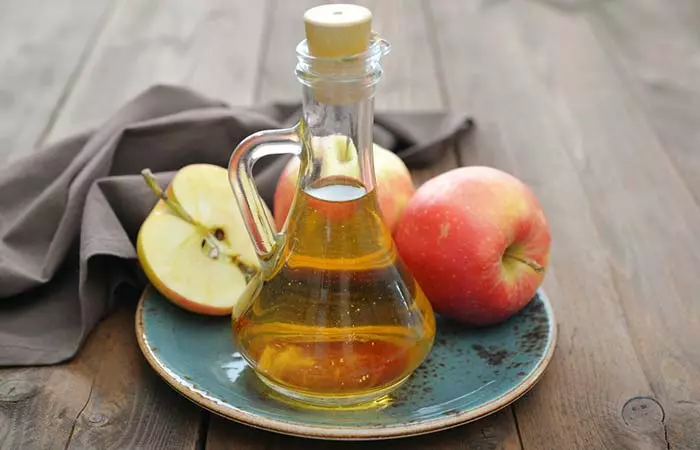
You Will Need
- 2 tablespoons of raw apple cider vinegar
- 1 cup of water
What You Have To Do
- Add the raw apple cider vinegar to water.
- Mix well and use this solution to wash your hair and scalp.
- Massage your scalp gently with this mixture for 5 minutes.
- Rinse the apple cider vinegar off your head with water.
- Do not shampoo soon after.
How Often You Should Do This
Do this 1 to 2 times daily.
Why This Works
The strong antimicrobial and anti-inflammatory properties of apple cider vinegar may help ease the symptoms of pain and itchiness associated with a sore scalp (2).
3. Coconut Oil
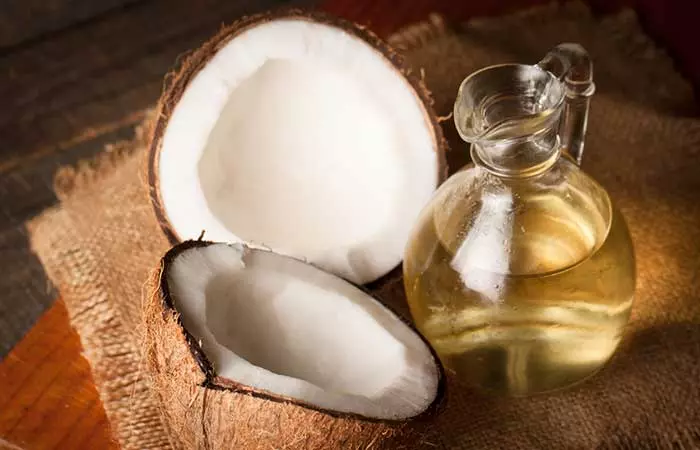
You Will Need
1-2 tablespoons of virgin coconut oil
What You Have To Do
- Massage coconut oil into your scalp.
- Leave it on for 30 to 60 minutes.
- Rinse it off with a mild cleanser.
How Often You Should Do This
You can do this 1 to 2 times every week.
Why This Works
The moisturizing properties of coconut oil promote scalp health. And the oil’s antimicrobial and anti-inflammatory properties can prevent infections and scalp inflammation (3), (4).
4. Neem Oil
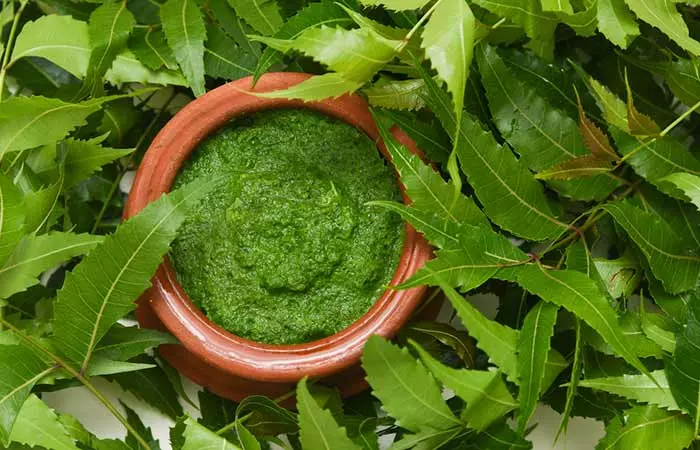
You Will Need
- A handful of neem leaves
- Water (as required)
What You Have To Do
- Take a handful of neem leaves and blend them with water.
- Apply the resultant neem paste to your scalp.
- Leave it on for 30 to 40 minutes and wash it off with water.
- Do not use a shampoo soon after.
How Often You Should Do This
You must do this at least once a week.
Why This Works
With its powerful anti-inflammatory and antimicrobial properties, neem is another wonderful remedy to treat scalp tenderness and its painful symptoms (5).
5. Aloe Vera
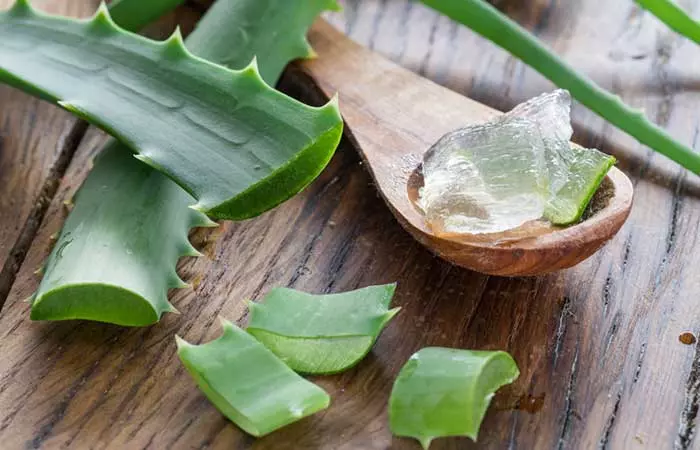
You Will Need
Aloe vera gel (as required)
What You Have To Do
- Take a small amount of freshly extracted aloe vera gel.
- Apply it directly to the scalp and leave it on for 30 to 60 minutes.
- Rinse the gel off your scalp with water.
- Do not follow up with a shampoo soon after.
How Often You Should Do This
Do this 2 to 3 times in a week.
Why This Works
The natural anti-inflammatory and soothing properties of aloe vera gel can work wonders on a sore scalp. Regular use of aloe gel may also help prevent dandruff from forming on the scalp due to its antibacterial and antifungal properties. It is also helpful in controlling fungal infections like alopecia (a condition that causes hair loss) (6).
6. Lemon Juice
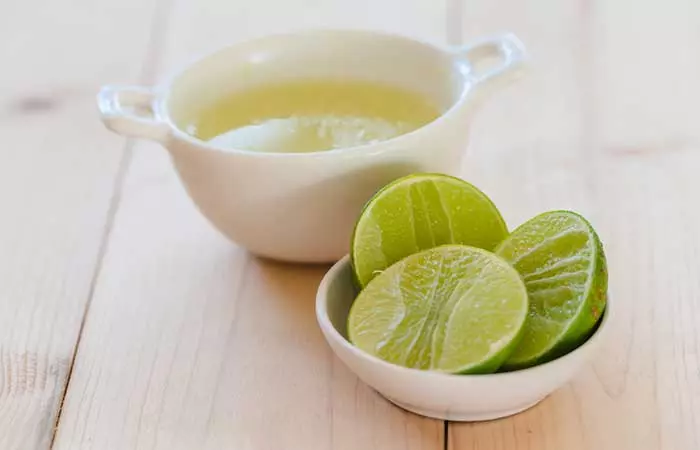
You Will Need
A few drops of lemon juice
What You Have To Do
- Add a few drops of freshly squeezed lemon juice to your shampoo or conditioner.
- Use the shampoo/conditioner to gently massage your scalp for about 5 minutes.
- Rinse your head with cold water.
How Often You Should Do This
You must do this whenever you wash your hair.
Why This Works
Lemon juice is acidic and can help restore the lost pH of your scalp. It is also a strong anti-inflammatory agent that can help soothe itchiness, inflammation, and soreness in your scalp (7).
7. Vitamins

You can also combat scalp tenderness with a little modification to your diet. Nutrients like vitamins B, C, and E promote healthy scalp and hair (8). They enhance sebum secretion of the scalp, protect it from free radical damage, and improve circulation.
Foods rich in these vitamins include catfish, chicken, wheat germ, peanuts, almonds, citrus fruits, green leafy vegetables, cheese, eggs, and milk. You can also take additional supplements for these vitamins after consulting your health care provider.
8. Baking Soda
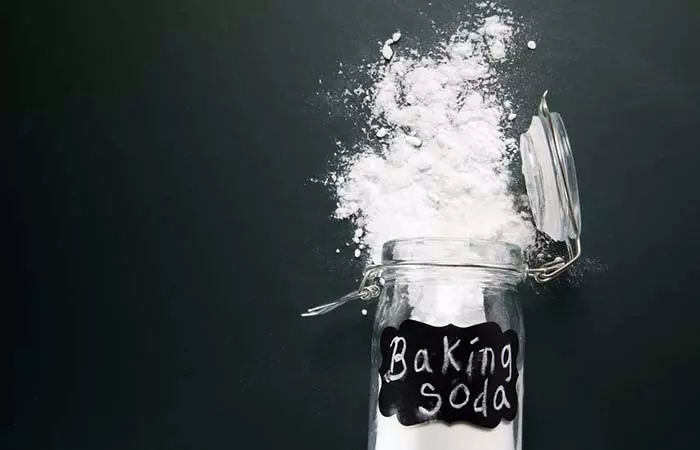
You Will Need
- 1 tablespoon of baking soda
- Water (as required)
What You Have To Do
- To a tablespoon of baking soda, add a little water to form a thick paste.
- Use this mixture as a scalp and hair cleanser.
How Often You Should Do This
You must do this at least once a week.
Why This Works
Baking soda is a strong alkaline agent that helps cleanse and soothe a tender scalp. Studies have shown that baking soda (sodium bicarbonate) has antifungal properties that can help fight against common fungi responsible for skin and nail infections. This suggests that it may also help prevent scalp infections caused by fungi or bacteria (9).
9. Witch Hazel
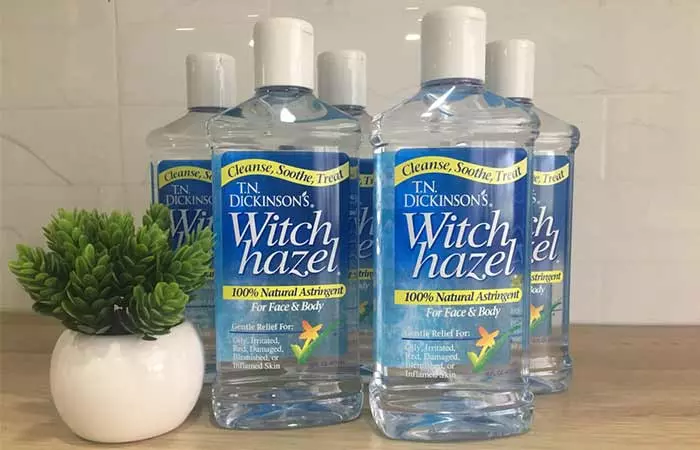
You Will Need
- 1 tablespoon of 100% pure witch hazel
- 2 tablespoons of water
What You Have To Do
- To a tablespoon of witch hazel, add two tablespoons of water.
- Mix well and massage this solution into your scalp.
- Allow it to work for about 5 to 10 minutes before rinsing it off.
- Avoid shampooing soon after.
How Often You Should Do This
Do this once daily.
Why This Works
Witch hazel is one of the most popular home remedies for scalp pain and itchiness. A study evaluated the use of a witch-hazel-based shampoo for treating sensitive scalp conditions. It was tested on over 1,300 patients, and most reported reduced irritation and good product tolerance. The shampoo contains flavonoids and tannins, which are natural antioxidants that help soothe scalp irritation and treat red scalp syndrome (10).
10. Sesame Seed Oil
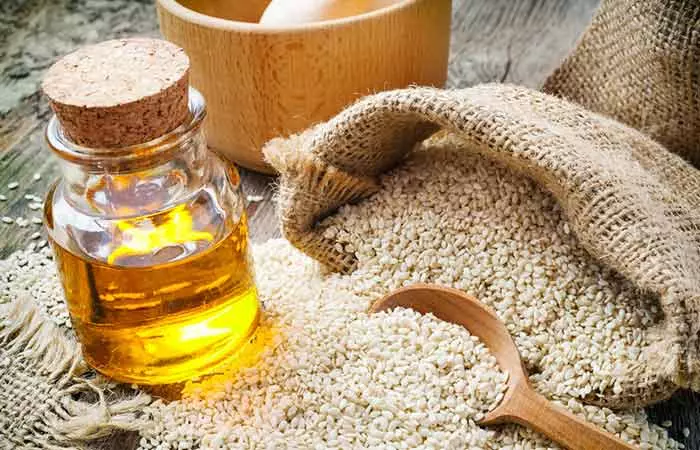
You Will Need
1-2 tablespoons of sesame oil
What You Have To Do
- Massage the sesame oil into your scalp.
- Leave it in for 30 to 60 minutes.
- Wash your head with a mild cleanser.
How Often You Should Do This
You must do this once a week.
Why This Works
Sesame seed oil may help relieve scalp pain and tenderness due to its anti-inflammatory and antibacterial properties. The antioxidants protect the scalp from damage, while the oil’s moisturizing properties prevent dryness and soothe irritation. The oil also improves blood circulation to the scalp, which may support healthy hair growth and reduce sensitivity (11).
11. Jojoba Oil
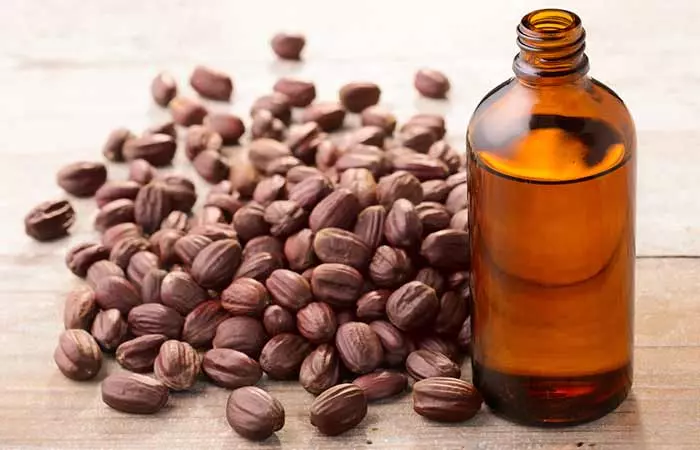
You Will Need
1-2 tablespoons of jojoba oil
What You Have To Do
- Warm the jojoba oil slightly.
- Massage it into your scalp.
- Leave it on for 30 to 40 minutes before rinsing it off with a mild cleanser.
How Often You Should Do This
You must do this 1 to 2 times per week.
Why This Works
The moisturizing and anti-inflammatory properties of the oil heal an inflamed, dry, and itchy scalp (12).
12. Flaxseed Oil
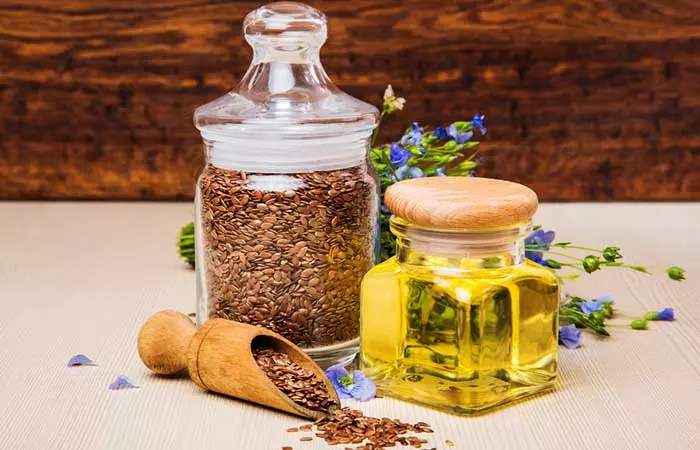
You Will Need
- 2 tablespoons of cold-pressed flaxseed oil
- A hot towel
What You Have To Do
- Apply two tablespoons of flaxseed oil to wet hair.
- Dip a clean towel in hot water and wring out the excess water.
- Wrap your head with the hot towel.
- Let it work for 20 to 30 minutes.
- Rinse the oil off with a mild cleanser.
How Often You Should Do This
You must do this once a week.
Why This Works
Flaxseed oil is packed with omega-3 fatty acids that help moisturize your scalp. It can also help combat inflammation and irritation with its anti-inflammatory effects (13).
13. Eggs
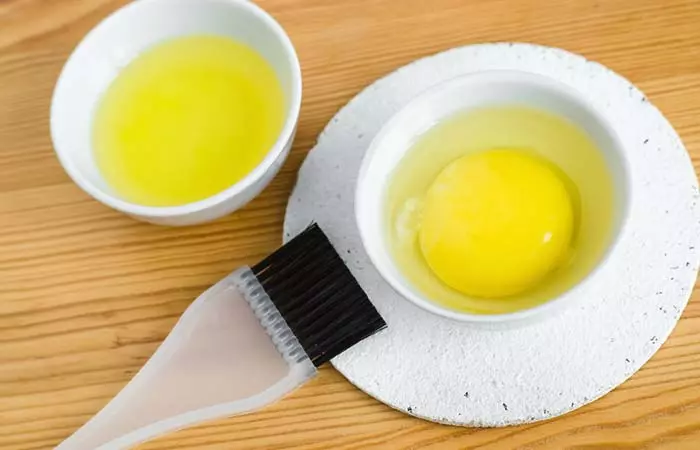
You Will Need
- 1-2 eggs (depending on your hair length)
- Shower cap or towel
What You Have To Do
- Whisk one to two eggs and apply it to your scalp and hair.
- Cover your head with a towel or shower cap.
- Leave it on for 20 to 30 minutes.
- Rinse it off with water.
How Often You Should Do This
You must do this at least once a week for the desired results.
Why This Works
Anecdotal evidence suggests that egg masks help restore the lost moisture of your scalp and soothe irritation. Eggs are rich in bioactive peptides that help boost blood circulation and nourish hair follicles (14). They might help improve scalp health.
14. Hydrogen Peroxide
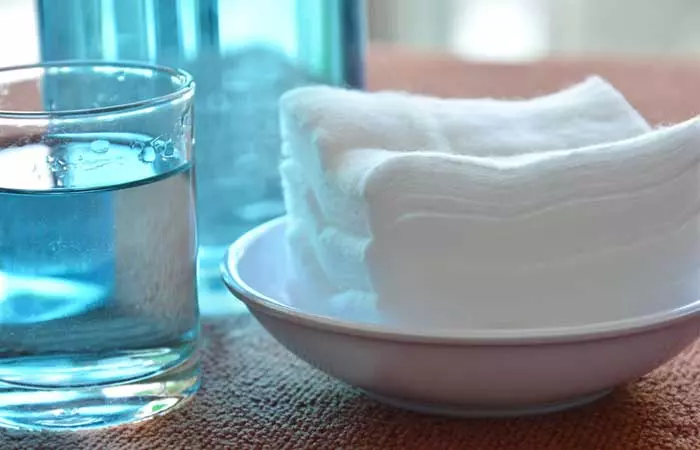
You Will Need
- 1 tablespoon of 3% hydrogen peroxide
- 2 tablespoons of water
What You Have To Do
- Mix a tablespoon of 3% hydrogen peroxide with two tablespoons of water.
- Use this solution to clean and sanitize your scalp.
How Often You Should Do This
Do this once every alternate day for best results.
Why This Works
The antimicrobial activities of hydrogen peroxide may help prevent infections of the scalp, thereby helping with dandruff and itchy, tender scalp (15).
 Quick Tip
Quick Tip15. Honey
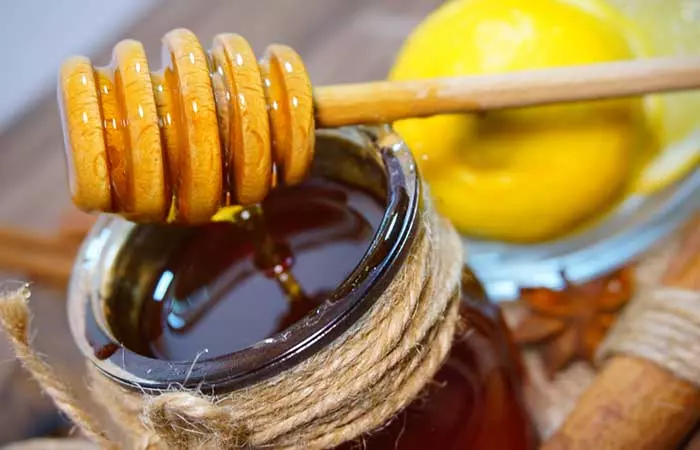
You Will Need
- 4 tablespoons of honey
- 1 tablespoon of warm water
What You Have To Do
- Mix four tablespoons of honey with a tablespoon of warm water.
- Apply this mixture to your scalp.
- Leave it on for 1 to 2 hours.
- Rinse away with warm water.
How Often You Should Do This
You must do this 1 to 2 times in a week.
Why This Works
Given that honey has powerful anti-inflammatory properties, it is no wonder that it works well against scalp tenderness, inflammation, and itching (16).
Some home remedies for scalp pain may cause allergic reactions, irritation, or dryness, especially if you have sensitive skin or pre-existing scalp conditions. Always do a patch test before applying any ingredient directly to your scalp. If you notice any discomfort, redness, or itching, discontinue use and consult a dermatologist for proper guidance.
Now, while you allow these remedies to work, you can also follow a standard scalp care routine to prevent future scalp issues. In addition, your doctor may help you with a customized treatment plan. Check out the next section for other treatment options for scalp tenderness.
Treatment Options For Scalp Tenderness
Treatment for scalp tenderness depends on the underlying cause. Here are some methods that help alleviate scalp tenderness:
- Essential oils (rosemary and lavender)
- Medicated washes, shampoos, conditioners, or rinses
- Topical antiseptics
- Ointments or creams containing corticosteroids
- Cold compress
- Pain relievers
- Topical antibiotics
- Antifungal medication
These are the other treatment options for scalp tenderness that you can opt for if home remedies don’t provide you relief. A blogger shares her experience of experiencing pain in her scalp, initially attributing it to the natural hair transition, but later discovering a small bald spot. Talking about natural remedies, she says, “I think I will go back to that as well as use rosemary and tea tree natural oils, and stick to a natural hair care routine (i).”
Listed below are a few tips that may help.
Tips To Prevent Scalp Problems
- Avoid spending too much time in the sun.
- Do not use chemicals such as dyes that may cause hair damage.
- Avoid using devices like blow dryers, flat irons, curlers, etc.
- Do not share your hair ties, bands, or towels with other individuals.
- Massage your scalp in a circular motion using your fingertips.
- Use essential oils of peppermint, eucalyptus, and rosemary for a therapeutic massage. Since essential oils are highly concentrated, dilute them with carriers such as castor oil or olive oil for enhanced benefits.
- Apply weekly scalp masks with soothing ingredients like lavender oil, chamomile, avocado oil, or tea tree oil.
- Let down tightly tied hair and allow your scalp to relax.
Infographic: Hair And Scalp Oils That Can Relieve Scalp Pain
There are a plethora of herbal remedies utilizing natural ingredients that can help relieve scalp pain. However, none perhaps, is as convenient as the ones using natural oils as they are easy to use and do not need any elaborate prep. Check out the infographic for a list of plant-based and other oils that can help you get rid of scalp pain.
Some thing wrong with infographic shortcode. please verify shortcode syntax
A tender scalp may be indicative of underlying medical conditions or be a result of sunburn, head lice, dandruff, or insect bites. Though this condition generally presents no symptoms, some individuals may experience numbness, peeling, flaking, pain, and scaling on the scalp. Secretion of pus or blood, sores, and blisters are uncommon symptoms but may occur in some individuals based on the underlying reason for the tenderness. Aloe vera, hydrogen peroxide, apple cider vinegar, vitamins, honey, baking soda, and witch hazel are some commonly used ingredients in home remedies for scalp pain.
Frequently Asked Questions
What are the best foods to eat to treat scalp tenderness?
Some foods that are known to keep your scalp and hair healthy include salmon, beef, prunes, green tea, carrots, eggs, brown rice, leafy veggies, oysters, and cottage cheese.
Why does my scalp hurt when I touch it?
Infections of the hair follicles often result in scalp sensitivity. It can cause your scalp to pain and become sore or warm.
How long does it take to heal a sore scalp?
With treatment and a few lifestyle changes, your sore and tender scalp will start reverting to its normal condition in as early as a week. If the tenderness does not decrease even after a month of treatment, it is best to seek medical intervention.
Why do the nerves on my scalp hurt?
Occipital neuralgia, a condition where the nerves running through the scalp are injured or disturbed, may cause the hurt. Strained neck muscles or pinched nerves can cause this condition. It may also result from a neck or head injury (17).
When should I be concerned about scalp pain?
Immediately consult a doctor if the excruciating pain persists or if you experience any fever or visual symptoms that do not subside within one to two weeks.
Why does it hurt when I touch the right side of my head?
You may have a migraine, tension headache, or cluster headache if you only experience pain on the right side of your head.
What does a brain tumor headache feel like?
These headaches could be significantly worse and more painful all over, or they could be more intense on one side of the head. They don’t feel like a regular headache. It is advisable to consult your doctor whenever you develop such headaches and any associated symptoms. The presence of any additional symptoms can frequently aid you and your doctor in determining the gravity of your condition.
Some thing wrong with illustration image shortcode. please verify shortcode syntax
Check out the following video to understand some of the major causes of your scalp pain and simple solutions to deal with it. It shares some easy tips to help you get relief quickly and effectively.
Personal Experience: Source
StyleCraze's articles are interwoven with authentic personal narratives that provide depth and resonance to our content. Below are the sources of the personal accounts referenced in this article.
i. Painful Scalp & Hair Losshttps://2dimplzs.wordpress.com/2015/11/09/painful-scalp-hair-loss/
References
Articles on StyleCraze are backed by verified information from peer-reviewed and academic research papers, reputed organizations, research institutions, and medical associations to ensure accuracy and relevance. Read our editorial policy to learn more.
- Melaleuca alternifolia (Tea Tree) Oil: a Review of Antimicrobial and Other Medicinal Properties
https://pmc.ncbi.nlm.nih.gov/articles/PMC1360273/ - Antimicrobial activity of apple cider vinegar against Escherichia coli, Staphylococcus aureus and Candida albicans; downregulating cytokine and microbial protein expression
https://pmc.ncbi.nlm.nih.gov/articles/PMC5788933/ - A randomized double-blind controlled trial comparing extra virgin coconut oil with mineral oil as a moisturizer for mild to moderate xerosis
https://pubmed.ncbi.nlm.nih.gov/15724344/ - Antimicrobial effects of virgin coconut oil and its medium-chain fatty acids on Clostridium difficile
https://pubmed.ncbi.nlm.nih.gov/24328700/ - Therapeutics Role of Azadirachta indica (Neem) and Their Active Constituents in Diseases Prevention and Treatment
https://pmc.ncbi.nlm.nih.gov/articles/PMC4791507/ - The Review on Properties of Aloe Vera in Healing of Cutaneous Wounds
https://pmc.ncbi.nlm.nih.gov/articles/PMC4452276/ - Anti-inflammatory effect of lemon mucilage: in vivo and in vitro studies
https://pubmed.ncbi.nlm.nih.gov/16435583/ - Diet and hair loss: effects of nutrient deficiency and supplement use
https://pmc.ncbi.nlm.nih.gov/articles/PMC5315033/ - Antifungal activity of sodium bicarbonate against fungal agents causing superficial infections
https://pubmed.ncbi.nlm.nih.gov/22991095/ - North American Virginian Witch Hazel (Hamamelis virginiana): Based Scalp Care and Protection for Sensitive Scalp, Red Scalp, and Scalp Burn-Out
https://pmc.ncbi.nlm.nih.gov/articles/PMC4158622/ - Hair Oils: Indigenous Knowledge Revisited
https://pmc.ncbi.nlm.nih.gov/articles/PMC9231528/ - Jojoba in dermatology: a succinct review
https://pubmed.ncbi.nlm.nih.gov/24442052/ - Anti-inflammatory, analgesic and antipyretic activities of Linum usitatissimum L. (flaxseed/linseed) fixed oil
https://pubmed.ncbi.nlm.nih.gov/22403867/ - Naturally Occurring Hair Growth Peptide: Water-Soluble Chicken Egg Yolk Peptides Stimulate Hair Growth Through Induction of Vascular Endothelial Growth Factor Production
https://pubmed.ncbi.nlm.nih.gov/29583066/ - Antimicrobial properties of hydrogen peroxide and sodium bicarbonate individually and in combination against selected oral, gram-negative, facultative bacteria
https://pubmed.ncbi.nlm.nih.gov/3016051/ - Analgesic and anti-inflammatory effects of honey: the involvement of autonomic receptors
https://pubmed.ncbi.nlm.nih.gov/24318481/ - Anatomy, Head and Neck, Occipital Nerves
https://www.ncbi.nlm.nih.gov/books/NBK542213/
Read full bio of Dr. Aanand Geria
Read full bio of Shaheen Naser
Read full bio of Ramona Sinha
Read full bio of Swathi E











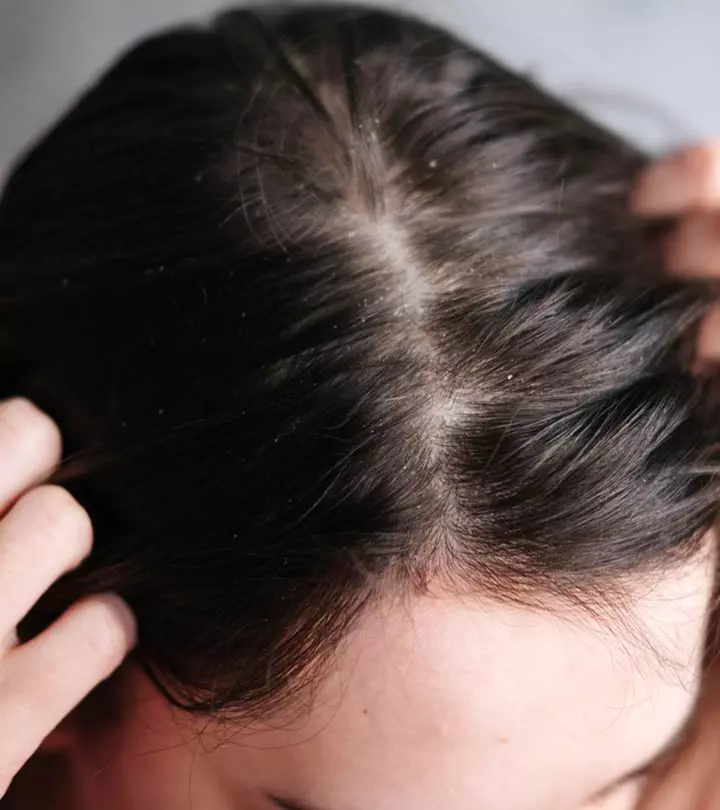


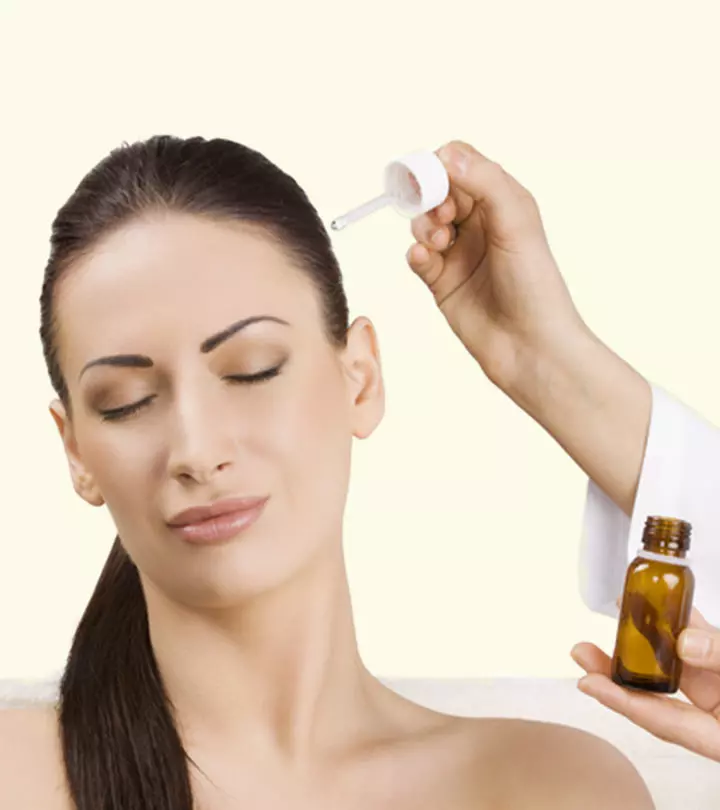

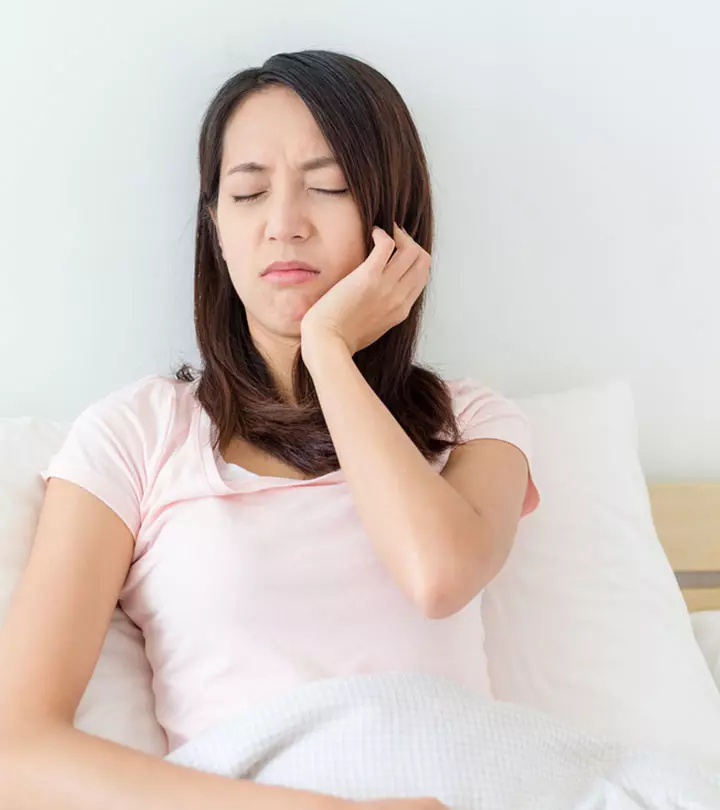
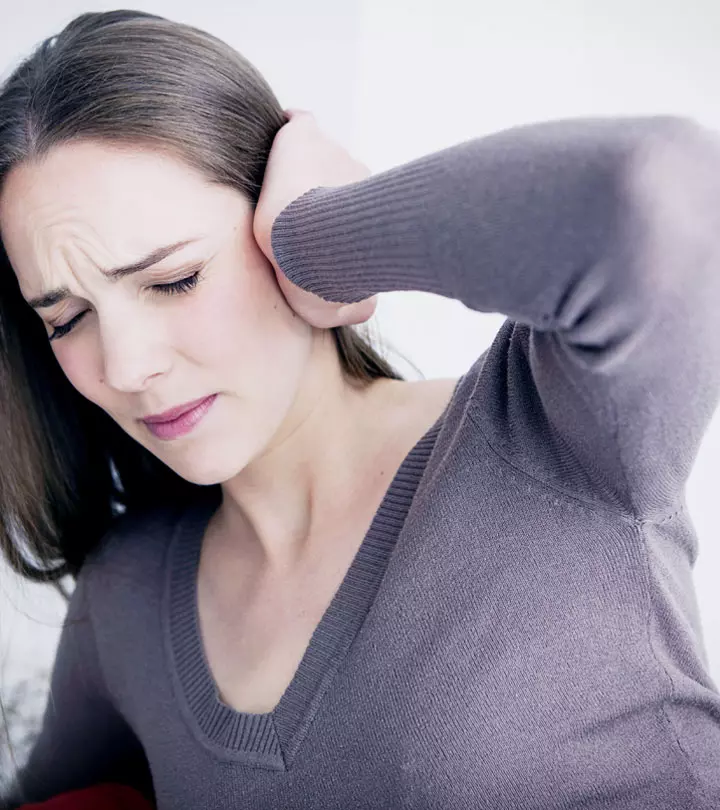


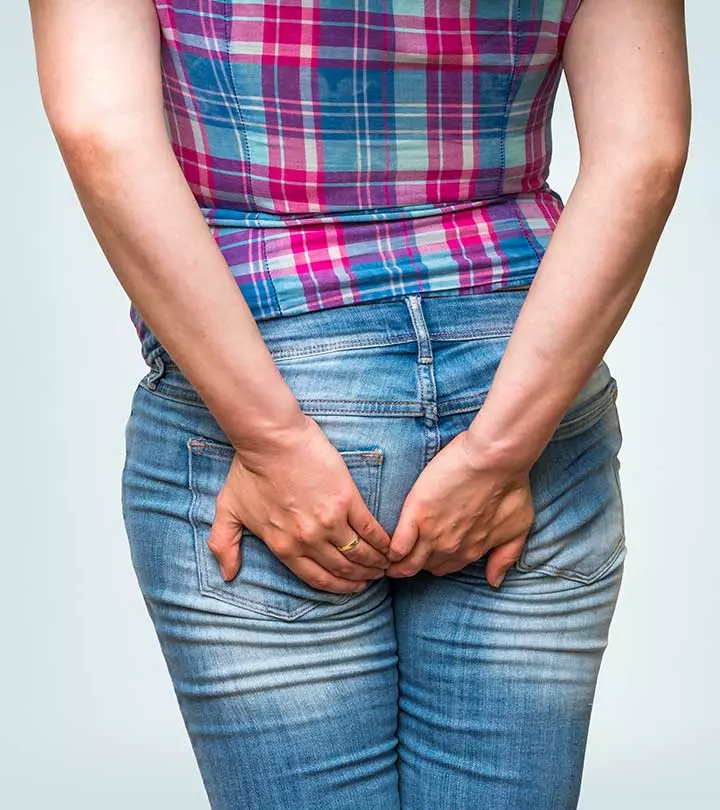
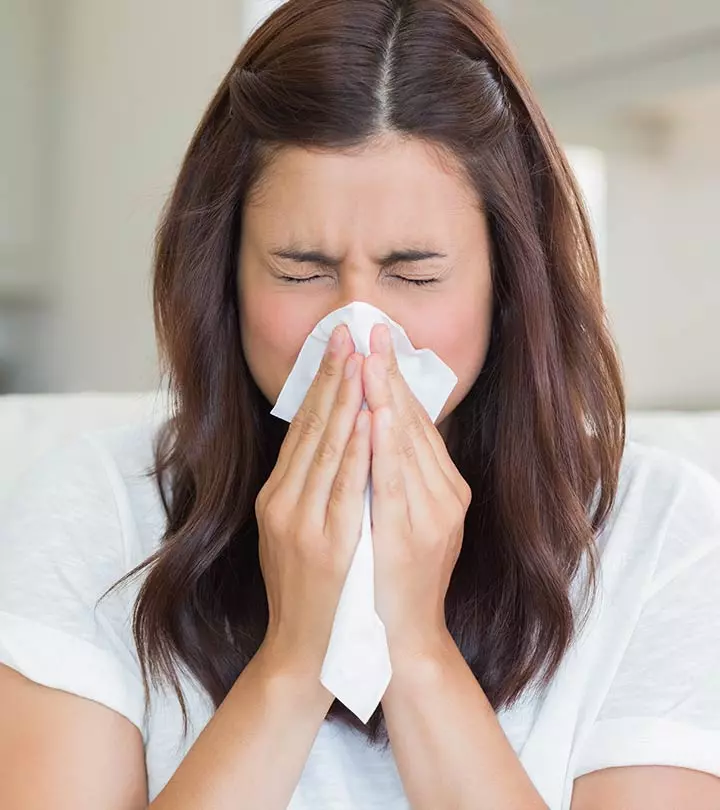
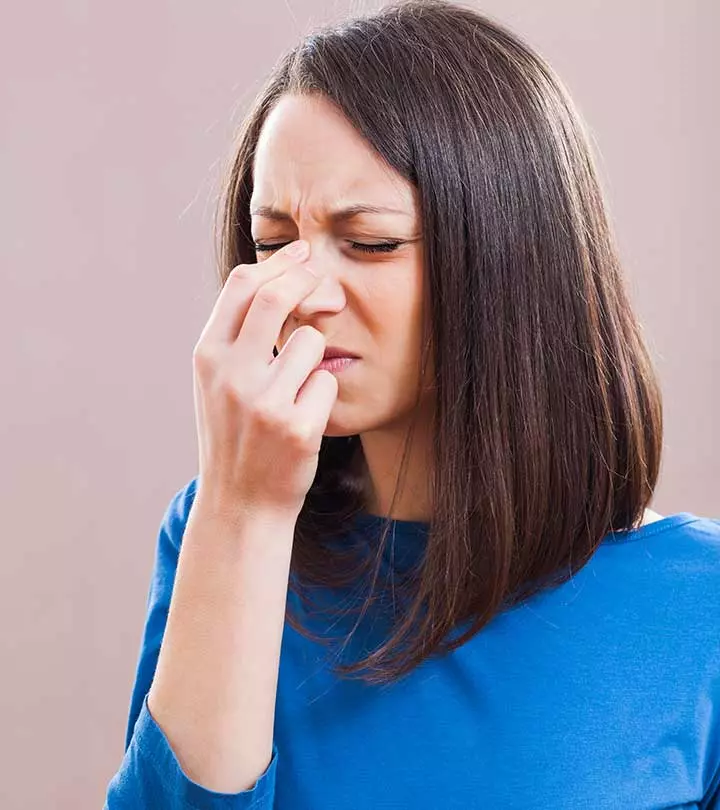
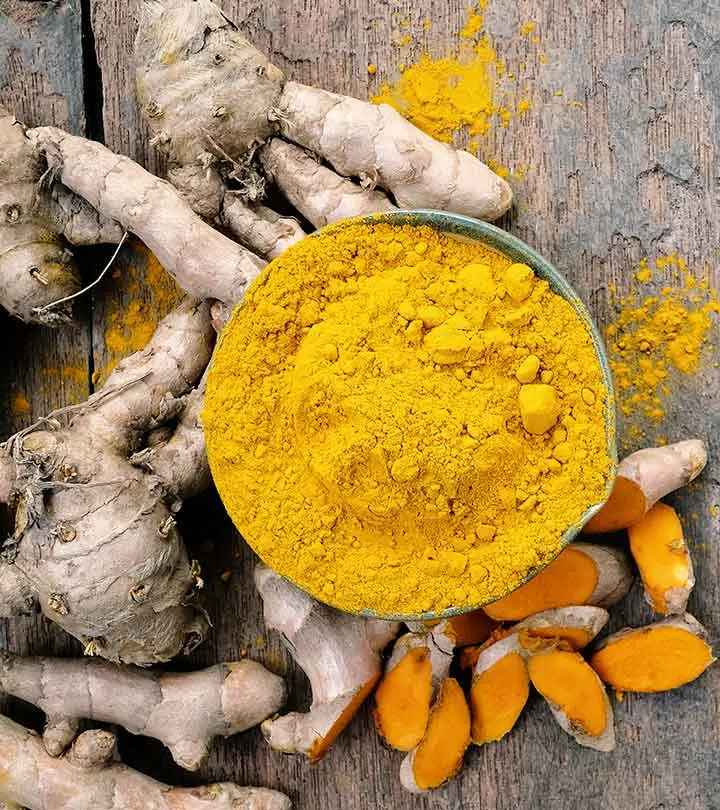
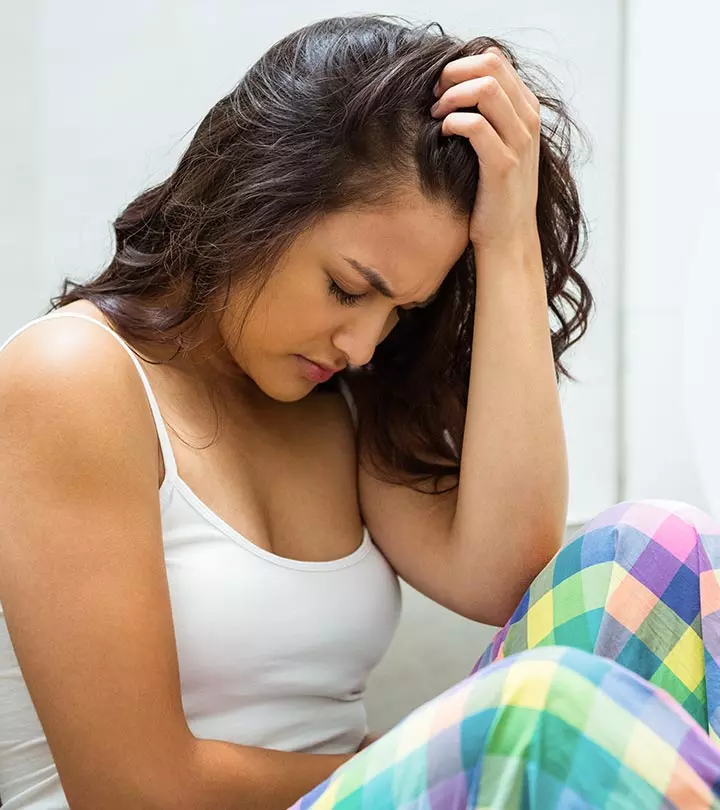

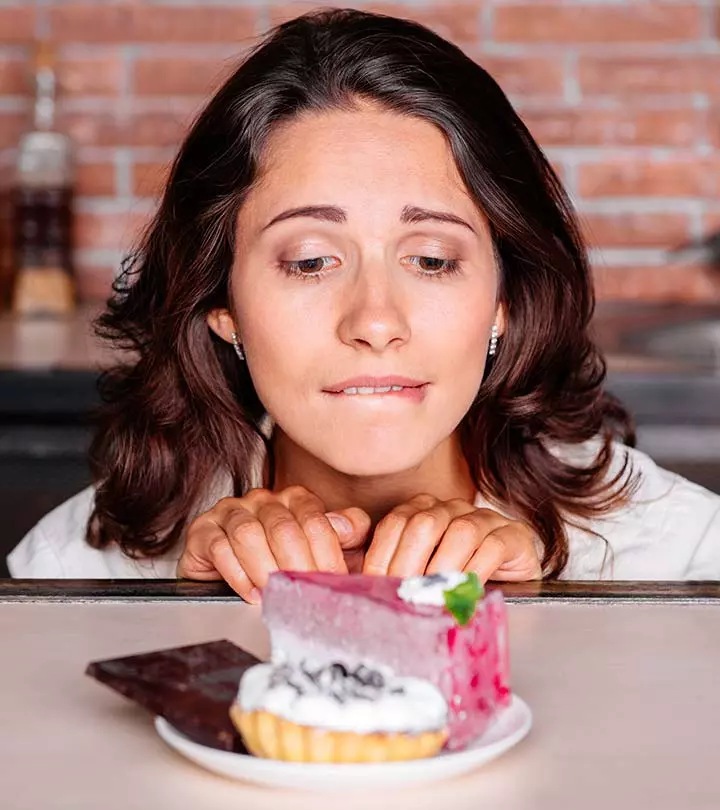
Community Experiences
Join the conversation and become a part of our empowering community! Share your stories, experiences, and insights to connect with other beauty, lifestyle, and health enthusiasts.